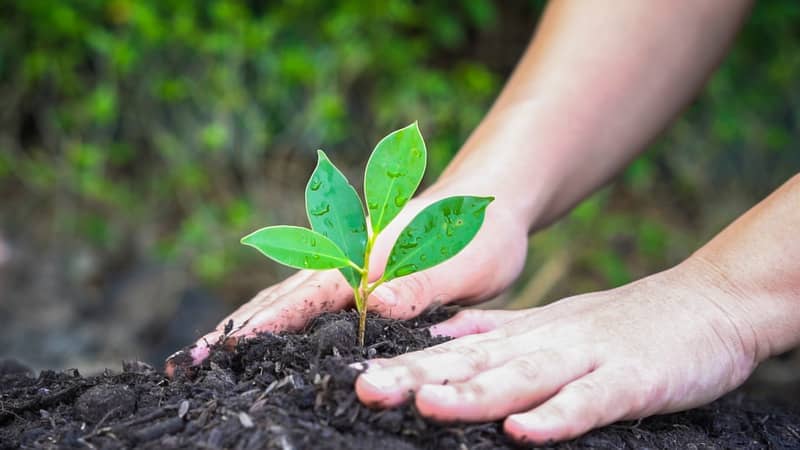The best time to plant a tree was 20 years ago. The second best time is now. – this Chinese proverb explains a lot. There is no best time or particular limit to do good things. Tree plantation is like giving someone life. Every tree we plant will become a saviour of society. Monsoon season is going on, it’s time to take initiatives on a big scale to plant trees and maintain our ecosystem. Tree plantations can give you easy breath.
As forests are the lungs of our land. Trees absorb harmful gases and emit oxygen. More tree plantations can help increase oxygen levels. The cyclones like Fani swept through parts of the nation, leaving behind a trail of destruction in their wake. Odisha suffered considerable losses in critical infrastructure – power, telecom and water supply, and nearly one million trees were uprooted. For the people living there, not only did they lose their green cover, but they also saw years of memories being taken away from them.
Besides the personal impact they prevent, trees have an enormous ecological presence and are crucial in the fight against global warming. Amongst the many benefits they offer, some species of trees also contain hurricane-resistant properties, which would be highly helpful along the country’s eastern coast. The primary reason is to save trees and tree plantations.
Need of tree plantation
Among everything, the gifting plant is perfect. Similarly, tree plantation is the best activity you can do on your special occasions. Humans always feel connected with nature when he is surrounded by greenery.
Deforestation became a major problem for increasing global warming rate. Trees play an extremely important part in regulating the temperature and making the weather conditions conducive to rainfall. They take in carbon dioxide from the air, thereby purifying it, and release oxygen, which is essential to the sustenance of life. Moreover, they also provide us with wood, food, fuel, paper, etc, which are an important part of our daily lives. Furthermore, they are home to all kinds of animals and birds as well.
Steps of tree plantation
- Label – decide best spot analysing favourable weather.
- Dig – dig the soil to make space for the root ball according to its size.
- Plant – plant it in space with a direction facing towards more light. Move the tree by root ball not by the trunk.
- Fill – fill the remaining space by filling the soil in the hole.
- Water – water it and mix the mud to settle the soil evenly.
- Care – take better care as we take care of a child. Show love!
Importance of tree plantation
- Oxygen in the time of pollution:
Trees help in reducing the levels of carbon dioxide, CFCs and other pollutants in the earth’s atmosphere, and store carbon in their wood, providing fresh air for all, and slowing the rate of global warming.
- Saves species from extinction:
Trees have the ability to host up to five hundred species within themselves. When young, they offer habitation and food to a host of communities containing birds, insects, lichen, and fungi. When they are older, their trunks provide a hollow cover needed by species such as bats, beetles, owls, and woodpeckers.
- Reduces the impact of natural disasters:
Trees often act as anchors for the earth’s surface. Species such as the Banyan tree have extensive roots that hold onto the soil and help in steadying the surface. This has helped in reducing the impact of landslides, rock falls, and avalanches. During floods, trees soak up the water reducing the damage brought on by the same. More importantly, some slow-growing trees have hurricane-resistant abilities and they assist in providing relief against this natural fury.
- Carries economic value:
Plant life has been the earliest contributor to the economic development of human beings, acting as a source of raw materials for farmers, hunters and gatherers alike. To this day, trees are an important source of raw materials in multiple sectors such as furnishing, medicine, cosmetics, rubber, fuel, and many more.
Why plantation is necessary?
Tree plantations benefits:
Social
- Spending time with tree plantation activity reduces the daily amount of stress.
- Green spaces make you and your children happier and more enthusiastic.
- One special planting on special can be your lifetime memory.
- The tree shows the spiritual value that ties society culturally together.
Economic
- Well-placed and more tree plantation helps to maintain heat balance in weather which can reduce cooling costs at your place.
- Tree plantation and growing tree CSR activities can help corporations to make a better workforce and increase productivity.
- Maintaining partnerships with ecosystem activities and good deeds helps to create a better image in your field.
Take inspiration from organisations like Ziqitza Healthcare Ltd. (ZHL) – one of India’s fastest emergency response service providers, whose employees recently conducted a tree plantation drive, by successfully planting saplings in its 108 ambulance services office premises in Madhya Pradesh. It is time for the citizens of this country to take cues from such noble initiatives, and come together to work towards environmental conservation in coherence to mitigate natural calamities.
In Conclusion
Tree plantation is as holy as saving someone’s life. But just planting trees will not work. We have to look it up. Show some care and love to get back the same values. Trees are our Life support. Take care of your life. Ziqitza believes in life. We provide life support emergency services as Trees do.


